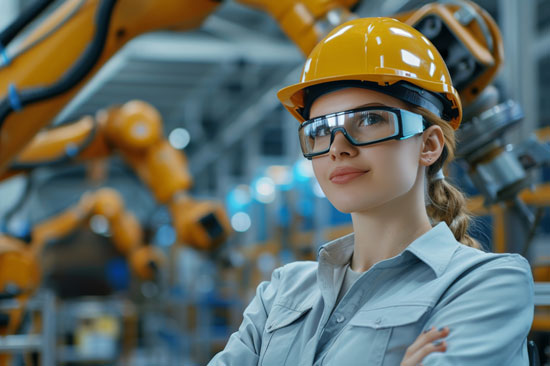Building the Future of AI Business Industry
The future of the business industry is being reshaped by artificial intelligence (AI), and this transformation is not just a technological shift—it’s a strategic evolution. As AI becomes more advanced, accessible, and integrated into everyday operations, businesses of all sizes and sectors are beginning to unlock its full potential. From automating processes to predicting market trends, personalising customer experiences to optimising supply chains, AI is fundamentally changing how industries operate, compete, and grow.
Building the future of AI in the business industry starts with a mindset shift—from viewing AI as a standalone tool to recognising it as a core driver of value and innovation. Leading organisations are embedding AI into their business models, using it not only to improve efficiency but to explore new possibilities. AI enables companies to go beyond what was previously possible with traditional systems—extracting insights from massive datasets, making real-time decisions, and adapting to changes with speed and precision.
One of the most powerful impacts of AI is its ability to transform decision-making. In the past, business leaders relied heavily on historical reports, intuition, and manual analysis. Today, AI empowers them with predictive insights, scenario modelling, and data-driven recommendations. This leads to more informed decisions, reduced risk, and faster responses to dynamic market conditions. Machine learning models, for instance, can analyse customer behaviour, anticipate demand shifts, or identify inefficiencies in real-time—providing a competitive edge that was unimaginable just a decade ago.
AI is also driving innovation by enabling businesses to develop entirely new products, services, and business models. Companies are using AI to create intelligent applications, automate customer support through chatbots, personalise marketing campaigns, and deliver smart recommendations. In industries like healthcare, finance, logistics, and manufacturing, AI is being used to optimise workflows, detect anomalies, and streamline operations at scale. The result is not just faster processes, but smarter, more adaptive businesses.
To build a sustainable AI future, however, businesses must focus on more than just technology. Successful implementation requires a thoughtful strategy, strong leadership, and a commitment to ethical and responsible AI practices. Trust, transparency, and fairness must be embedded into every AI initiative. Organisations must also invest in upskilling their workforce, ensuring that employees understand how to work alongside AI and use it effectively. Far from replacing humans, AI is an enabler—augmenting human capabilities and empowering teams to focus on creative and strategic work.
Equally important is collaboration. The future of AI in business will be shaped by partnerships—between technology providers, industry experts, policymakers, and academia. By working together, we can ensure that AI solutions are not only powerful but also aligned with industry needs, compliant with regulations, and designed to benefit both businesses and society.
In conclusion, building the future of the AI business industry is about more than adopting the latest tools. It’s about creating intelligent, ethical, and resilient systems that drive sustainable growth, foster innovation, and enable organisations to lead in an increasingly complex world. Those who invest in AI today are laying the foundation for tomorrow’s success.

